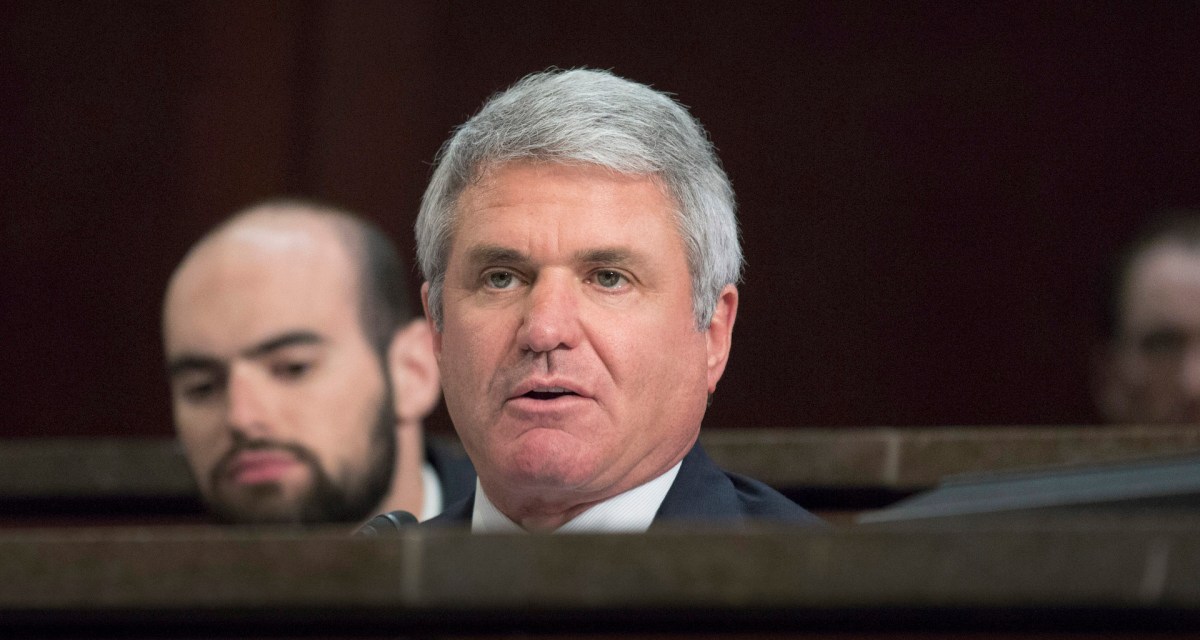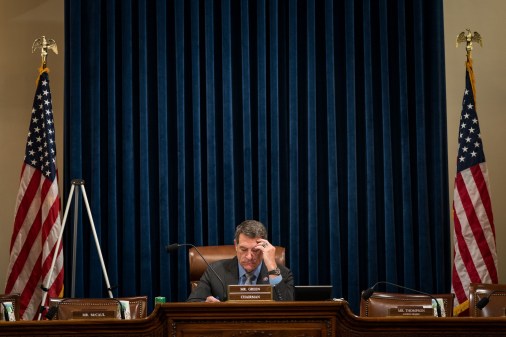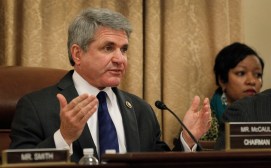House panel rejects call for cyberthreat report on ZTE amid possible Trump deal

On the heels of a reported U.S. deal with embattled Chinese telecom company ZTE, American lawmakers rejected a Democratic measure that would have directed the Department of Homeland Security to provide more information on any cybersecurity risks posed by the international tech company.
The top Republican and Democrat on the House Homeland Security Committee sparred over the utility of the resolution, which would have tasked DHS with providing any documentation it has on cyber risks introduced by the use of ZTE products on federal, state and local government networks. The Republican-led panel voted 16-11 against the measure.
Instead, lawmakers will get a classified briefing from officials at DHS, the FBI and the Defense Department on June 13 about the national security risks posed by ZTE and Huawei, another Chinese technology giant. Texas Republican Michael McCaul, the committee’s chairman, announced the briefing at a committee markup Wednesday on Capitol Hill.
U.S. officials have long warned of the risk of cyber-espionage from ZTE and Huawei due to their alleged ties to the Chinese government’s intelligence agencies. Both companies deny that an improper relationship exists. While Republican and Democratic lawmakers have echoed those concerns, they have differed on how to pressure the Trump administration to address them.
The Commerce Department banned ZTE in April from buying components from U.S. suppliers for seven years, accusing the company of flouting a 2017 sanctions settlement over its business with North Korea and Iran.
ZTE, a top maker of smartphones, effectively shut down major operations after the ban. But in an abrupt policy shift, President Donald Trump last month said he had ordered the department to help get ZTE “back into business” as the U.S. and China negotiate a trade deal. Reuters reported Tuesday that ZTE had signed a preliminary agreement that would lift the ban.
McCaul said the House “resolution of inquiry” on ZTE was redundant as he had already written Homeland Security Secretary Kirstjen Nielsen on the issue and that DHS officials had told the committee that “they’re not aware of any existing DHS contracts” with ZTE or Huawei. But Mississippi Democrat Bennie Thompson, the committee’s ranking member and sponsor of the resolution, said he was trying to prevent Trump from taking “his boot off the neck of ZTE” amid trade negotiations with Beijing.
McCaul’s letter, obtained by CyberScoop, asks Nielsen for “detailed information,” by June 14, on the department’s “progress in identifying and mitigating the threat posed” by ZTE and Huawei. McCaul also wants to know if DHS has issued guidance to personnel and contractors on threats stemming from Huawei and ZTE devices, and if there are other “foreign telecom and software providers which pose similar threats.”
The House panel appears far from finished in tackling the issue of cyber-espionage and foreign-made IT equipment. McCaul said his staff had been working for months with DHS on legislation that would give the department “authorities similar to DOD to deny procurements on national security grounds.”
You can read the full letter from McCaul to Nielsen below:
https://www.documentcloud.org/documents/4496072-2018-05-17-F-McCaul-to-Sec-Nielsen-Re-ZTE-and.html




